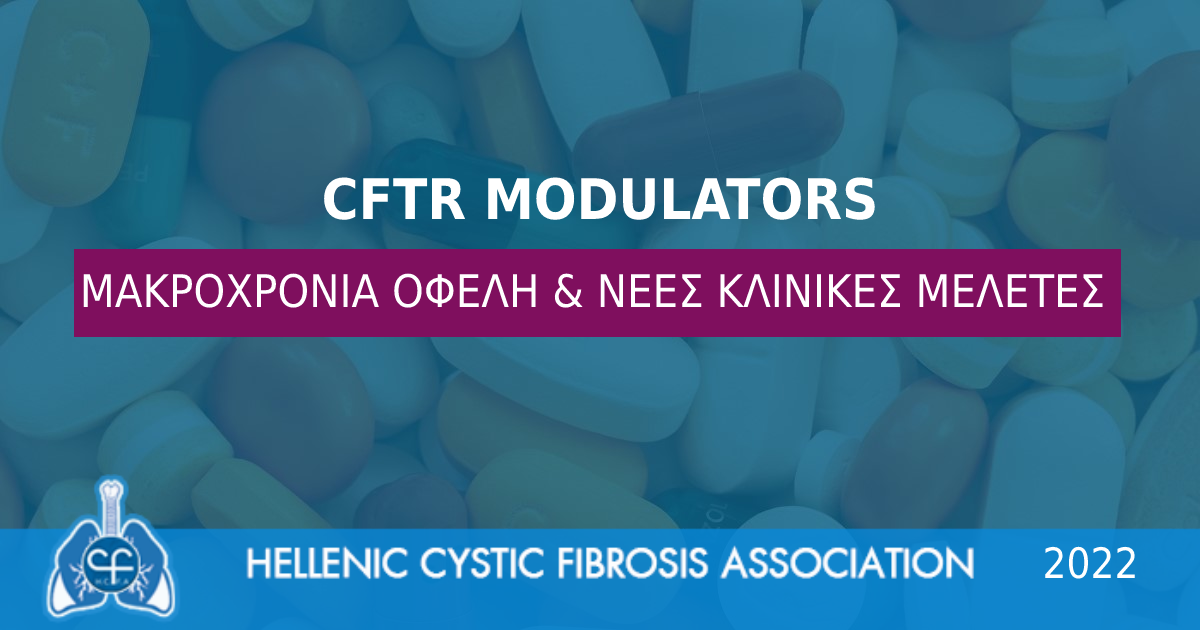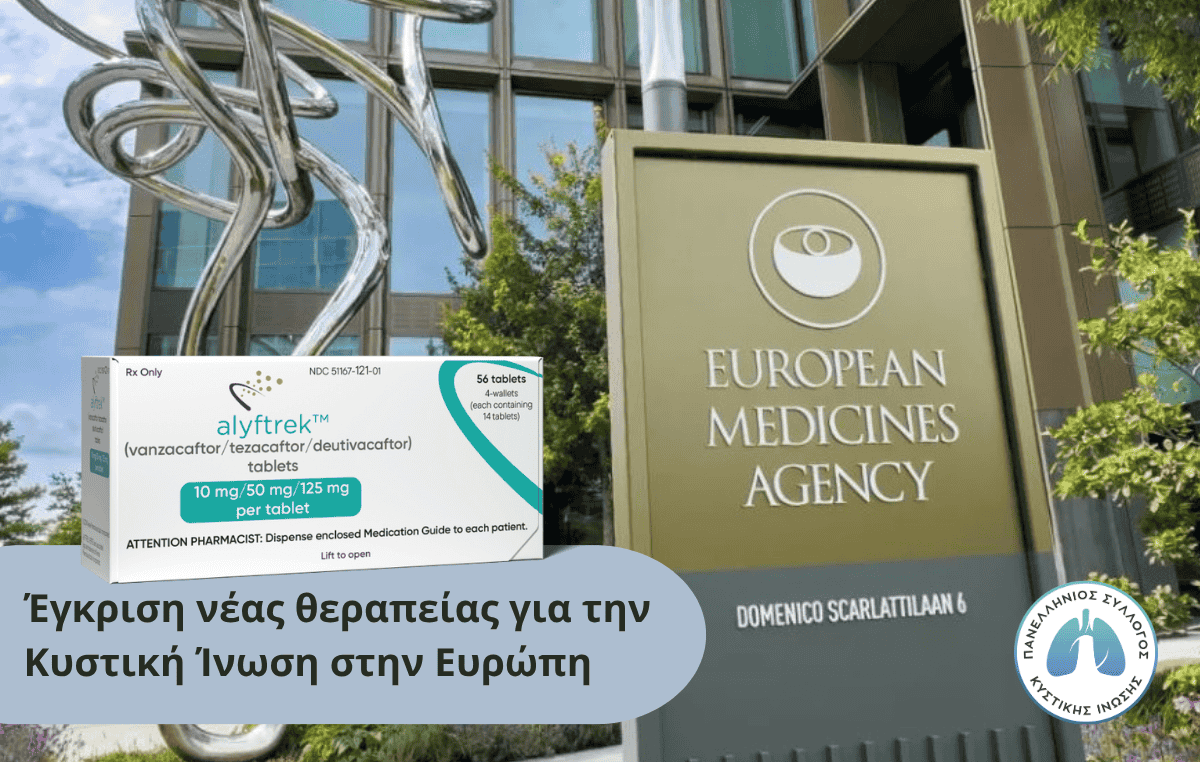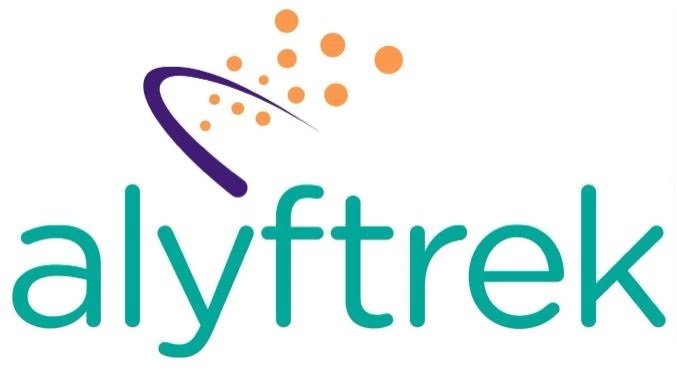Promising news for long-term benefits of innovative treatments in Cystic Fibrosis & new clinical studies on rare mutations
Very promising are the news about the long-term benefits for those Cystic Fibrosis patients who receive the revolutionary CFTR triple combination therapy that “freezes” the disease, but also for those patients who are not eligible due to their rare mutations!
The benefits of the long-term use of the innovative CFTR Modulators therapies were presented by the pharmaceutical company Vertex at this year’s European Cystic Fibrosis Conference in Rotterdam on 8-11 June, in which the General Secretary of the Hellenic Cystic Fibrosis Association, Konstantina Giannaki, participated, representing the Greek patients. In particular, the data analysis based on data collected from the U.S. CF Foundation Patient Registry (CFFPR) for more than 16,000 American patients who received Kaftrio/Kalydeco (known as Trikafta in America) treatment for an average of 9 months was presented. Analysis of the Registry data showed that Kaftrio/Kalydeco not only improved patients’ lung function, but also reduced the risk of exacerbations by 77%, compared to pre-TRIKAFTA® baseline, as well as the risk of lung transplantation by 87% and the risk of death by 74%, compared to 2019 U.S. CFFPR population. Data analysis also showed that there were no safety concerns for the treatment.
Moreover, based on the American Registry data and clinical trial results, in patients with two F508del mutations or one F508del mutation and one minimal function mutation receiving Kaftrio/Kalydeco, no reduction in respiratory function (ppFEV1) was noticed over an average period of 2 years, compared to patients not receiving CFTR therapy, demonstrating that taking Kaftrio/Kalydeco has a very significant effect on the course of respiratory function in patients with Cystic Fibrosis.
As Vertex Vice President Carmen Bozic stated, “We continue to make rapid progress in developing therapies that address the causes of the disease and today we are closer than ever to our goal of developing highly effective treatments for all Cystic Fibrosis patients.”
In America 2 clinical trials are already starting for patients who are not eligible for Kaftrio/Kalydeco due to their rare mutations and will test the effectiveness of the treatment in these patients.
The two clinical trials are for a) Cystic Fibrosis patients who have two CFTR mutations that are not eligible for Kaftrio/Kalydeco and at least one of these mutations is N1303K and b) people who have partial function of the CFTR protein. Partial CFTR function is defined as a sweat test below 80 mmol/L and/or pancreatic sufficiency (i.e. these individuals are not receiving pancreatic enzyme therapy). The two studies will measure changes in pulmonary function and sweat test in participants, and skin and/or blood biopsies will also be taken to test how cells respond to treatment and to test whether these cells can be used to predict clinical response in patients with Cystic Fibrosis who have rare mutations.
Read more about the 2 clinical studies here and here.
Here you can read Vertex’s press release on the long-term benefits of taking CFTR modulators.




